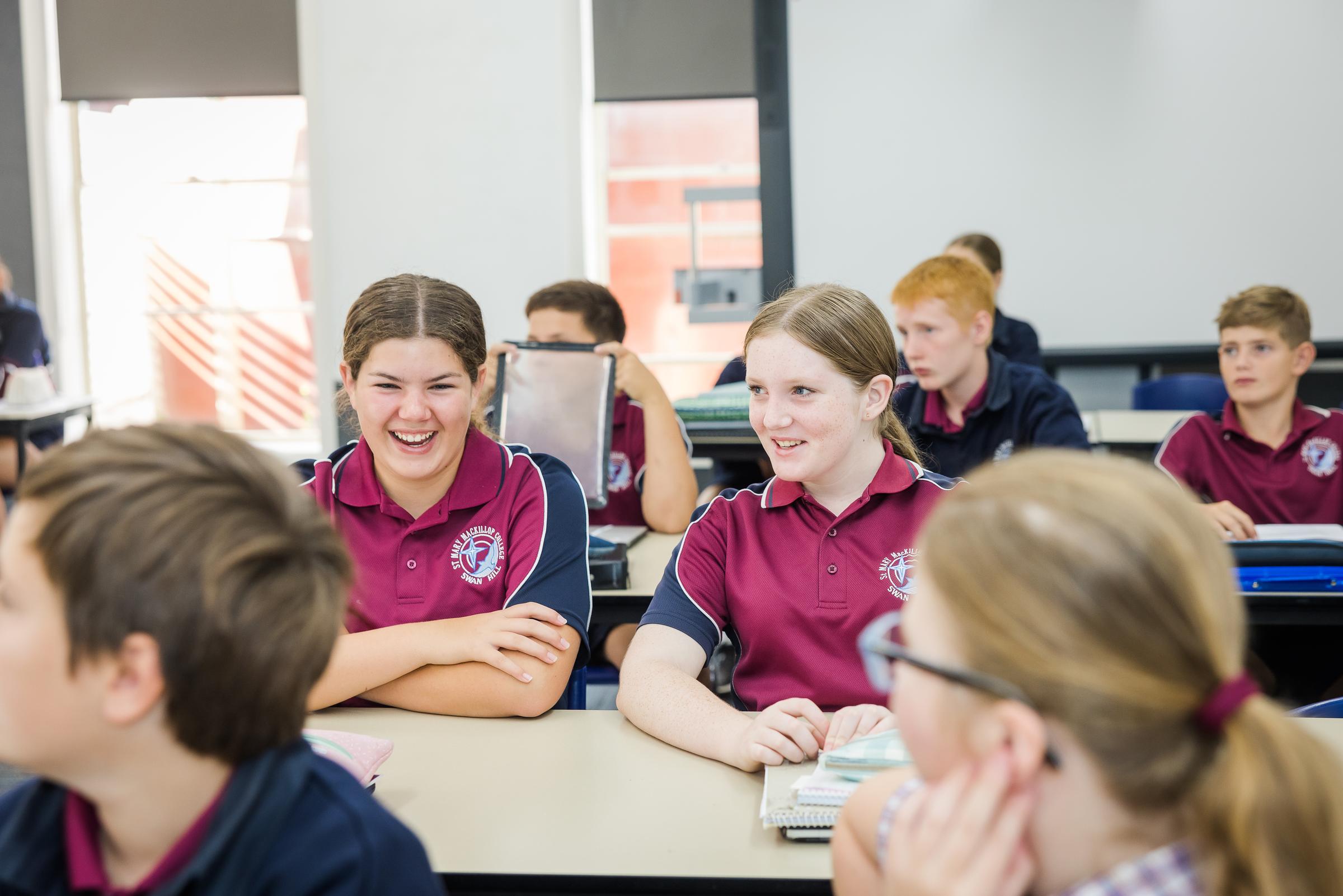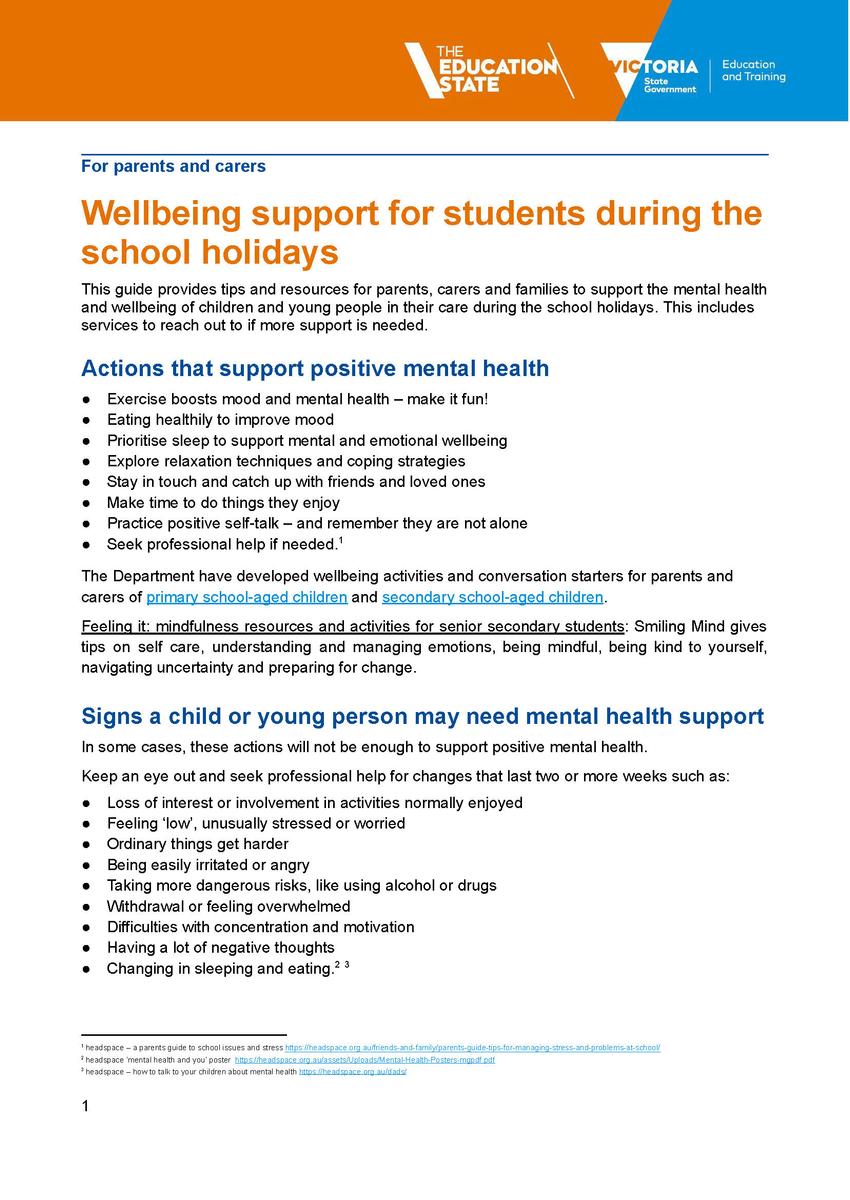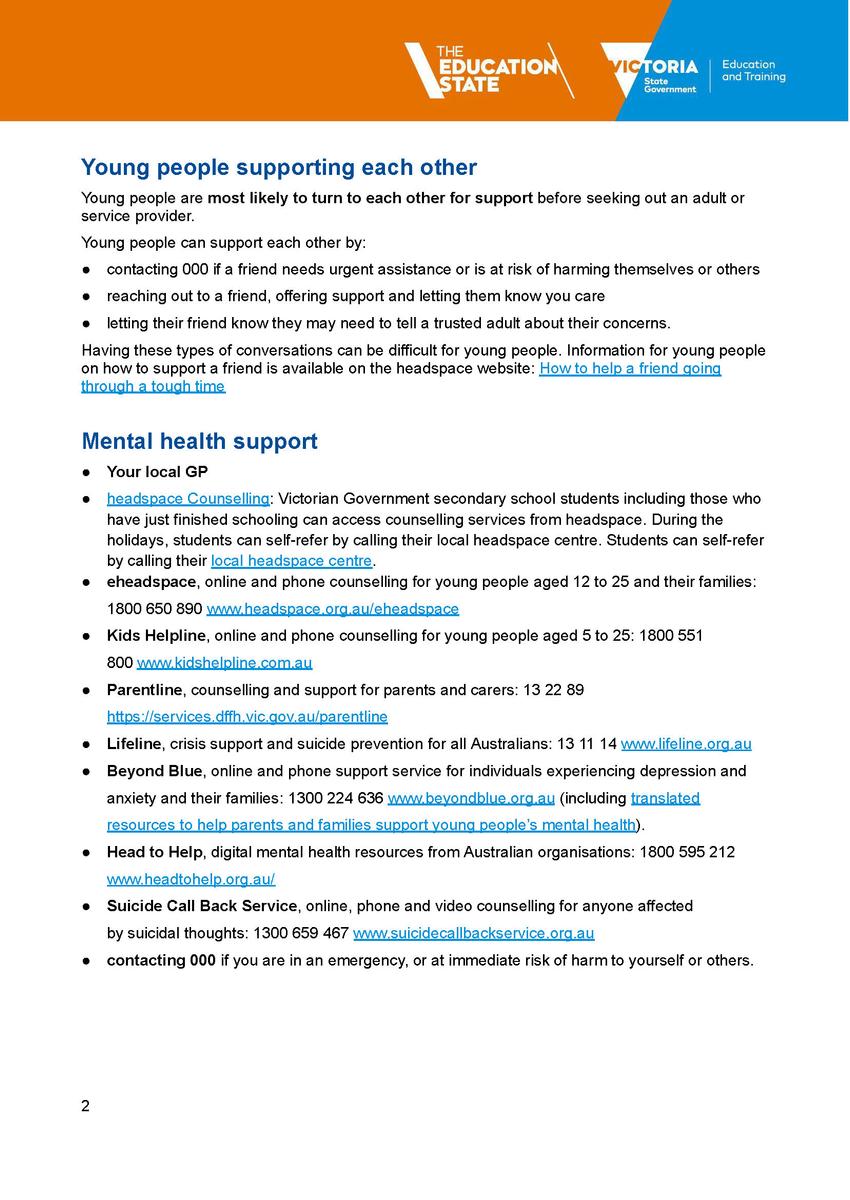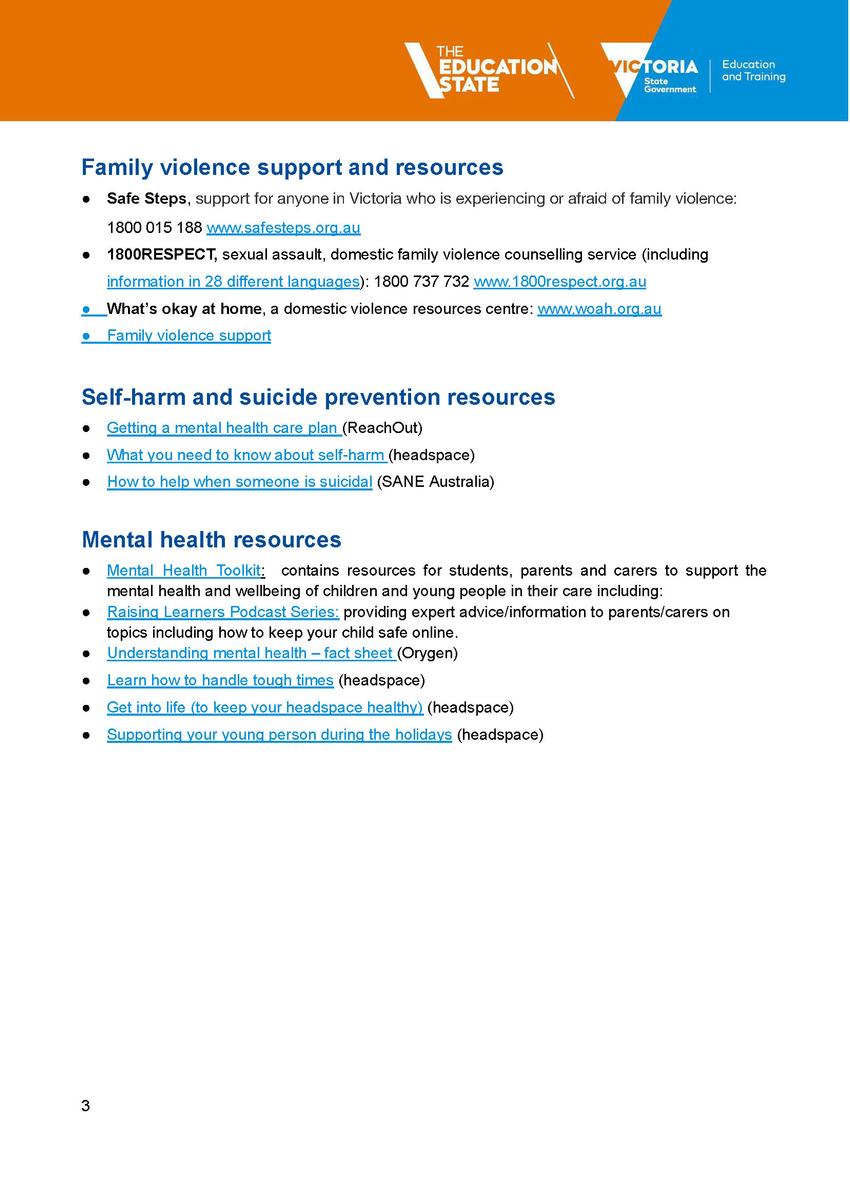WELLBEING TIPS FOR THE HOLIDAYS
MS MANDY MCCALLUM - DIRECTOR OF WELLBEING

WELLBEING TIPS FOR THE HOLIDAYS
MS MANDY MCCALLUM - DIRECTOR OF WELLBEING


The holiday break offers a welcome opportunity to step back, unwind and rest up for a busy term ahead. Unfortunately, students will often fall back into bad habits or undo some of the positive gains made during the year due to a lack of consistency and routine. It is easy to stay up late, sleep in on the morning, spend too much time on screens and devices, overeat and forget to exercise.
Losing the positive social connections, daily routines and learning habits of a normal school day can lead to a backward step at the beginning of the following school year when poor habits can be hard to break. It is important that students stay focused and live healthy lifestyle choices so that they can maintain positive mental health.
Below are several ways you can support your child’s mental health and wellbeing during the holidays.
On behalf of the Wellbeing Team, we wish all our St Mary MacKillop College families a Merry Christmas and a Happy New Year, and we look forward to the 2024 school year.
Social relationships are important to any young person’s general wellbeing. Having a variety of friendship groups both in and out of school will provide a diverse social support network essential for developing appropriate relationships.
Getting a good night’s sleep not only helps adolescents feel energised, focused and motivated but is also essential for neurological growth and development.
Physical activity elevates heart rate, oxygenates the brain and increases the release of endorphins which have positive effects on health and wellbeing both in the short and long term.
A healthy well-balanced diet doesn’t only reduce the risk of physical health problems, like heart disease and diabetes, but it can also help with sleeping patterns, energy levels, mood and general health and wellbeing.
Try to avoid setting up unnatural “we need to talk” talks. Often doing something together, taking a drive or a walk or having device free times such as in the car or at meal times will lead to more natural conversations. Often being heard is enough. You want your child to know that no matter what it is that is on their mind, you are always there to listen.





